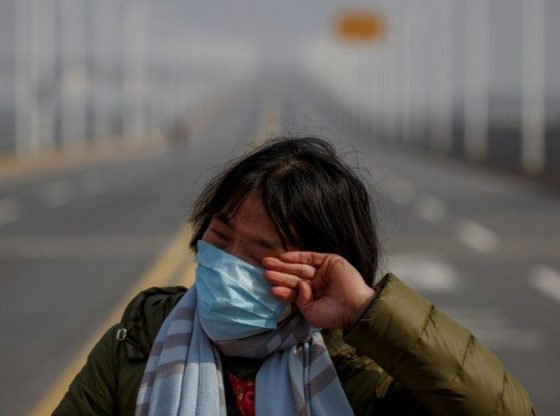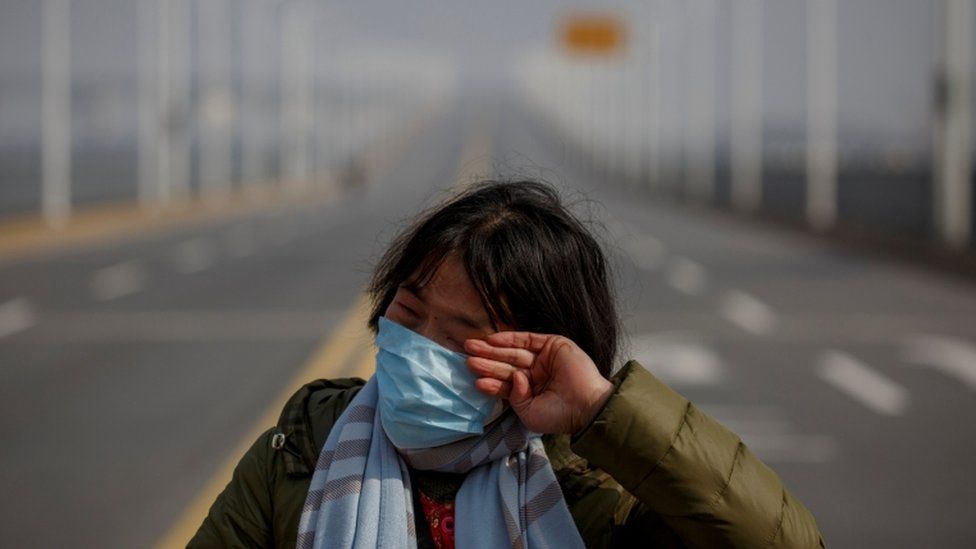
When a cancer patient was blocked at a Chinese checkpoint, the picture of her mother’s tears went round the world. But what happened before – and afterwards?
With one hand, Lu Yuejin carried a bucket and a bag of clothes. With the other, she held a duvet tight round her sick daughter.
Hu Ping needed the duvet to stay warm: she had leukaemia. But more importantly, she needed to leave Hubei, her home province.
The 26-year-old began chemotherapy in Wuhan, the capital of Hubei, in January. But the coronavirus outbreak – which emerged in Wuhan late last year – had overwhelmed the hospitals.
On 28 January, the hospital told her there was no room: she had to go elsewhere. The family tried 10 other hospitals in Hubei, but none had a bed.
Hu Ping lived near the border, so she and her mother tried to enter Jiangxi province. But then, on a bridge over the Yangtze river, they realised they were trapped.
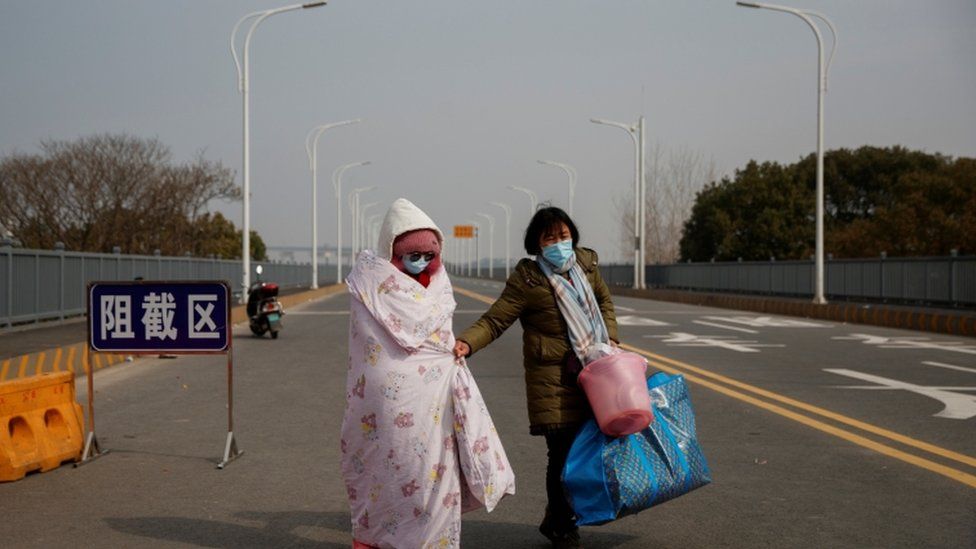 Image copyrightTHOMAS PETER – REUTERS
Image copyrightTHOMAS PETER – REUTERSWuhan was quarantined on 23 January, and the rest of Hubei soon followed.
It was possible to leave for medical reasons, but Hu Ping did not have the right pass. They could not cross the bridge.
When Lu Yuejin heard the news, she started to cry. “Please, take my daughter,” she said. “I don’t need to go past… please, just let my daughter go past.”
Nearby were two journalists from the Reuters agency – Martin Pollard and Thomas Peter.
“My daughter needs to go to hospital in Jiujiang [the Jiangxi border city],” she told them. “She needs to have her treatment. But they won’t let us through.”
As she spoke, the loudspeakers blared out a brutal reminder: Hubei residents, the message said, were not allowed into Jiangxi.
“All I want to do,” said Lu Yuejin, “is save her life.”
As Lu Yuejin begged and the speakers blared, Hu Ping sat on the floor, wrapped in her duvet. After an hour, an ambulance arrived on the other side of the checkpoint, and they were allowed in.
Pollard and Peter filed their story, and the world – from the Japan Times to the Gulf News – saw Lu Yuejin’s tears. But what happened next was unknown – until now.
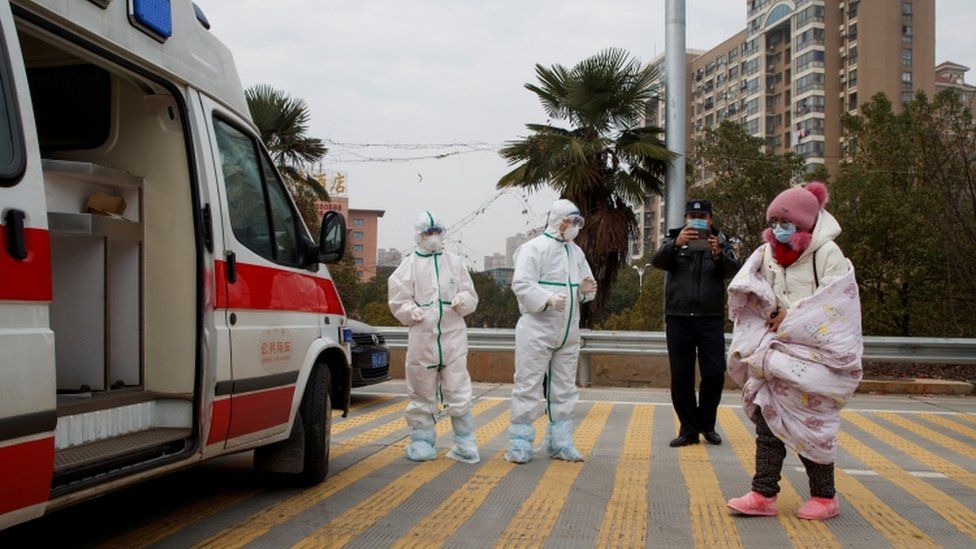 Image copyrightTHOMAS PETER – REUTERS
Image copyrightTHOMAS PETER – REUTERSAfter seeing Reuters’ story, the BBC tracked down Hu Ping’s family and spoke to Shi Xiaodi – her fiancé. He tells us what happened at the border.
“My mother-in-law cried for a long time, begging those police,” he says.
“The police came to ask for the reason in detail, and got to know that she [Hu Ping] was a severe leukaemia patient in need of treatment.
“The police asked their boss for instructions. The boss understood the situation clearly, and called the ambulance.”
Hu Ping was taken across the river to the Third People’s Hospital of Jiujiang University Hospital. Finally – after all the calls, and all the visits – she was taken in.
“She is now getting good treatment,” says Shi. “Because she is young, she is recovering quite well.” But their worries aren’t over.
The couple are not wealthy, and cancer treatment in China can be expensive (public health insurance doesn’t usually cover the full cost of treatment).
So, when she was diagnosed, Shi made a video: “Bride diagnosed leukaemia, we won’t give up.”
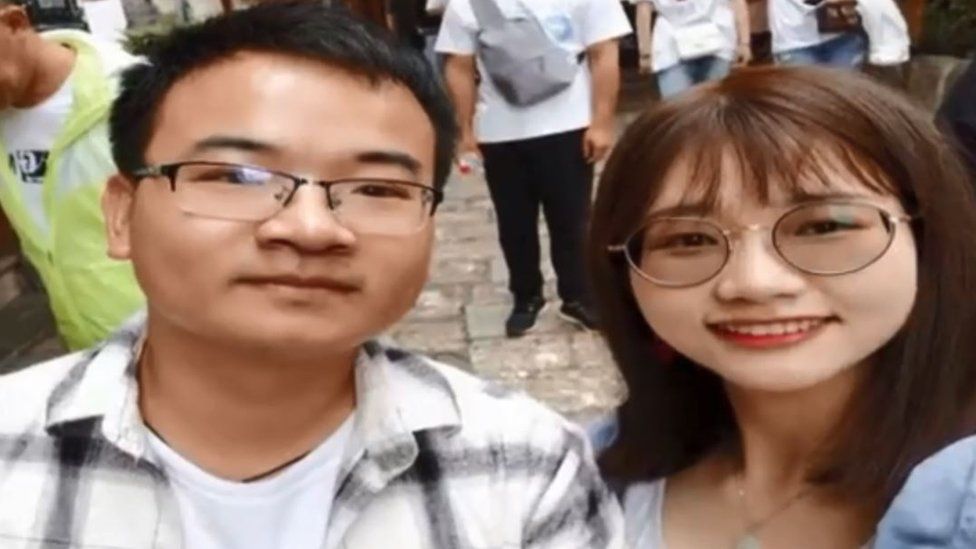
They received tens of thousands of yuan in donations. “So many people tried to help us,” he says – but it wasn’t enough.
Shi has spent his 100,000 yuan (£11,000; $14,000) life savings on his fiancé’s treatment but, he says, the cost will be met “mainly by her family”.
“The family has no income now,” he says. “Her parents are all farmers and can’t go out to work [because of the virus].”
Shi is not critical of the Chinese government, or the hospitals that turned away his fiancée.
“The hospital, the doctors, the nurses – many, many of my classmates – they didn’t get rest,” he says. “Every day, every time, they are consistently working. They tried very hard.”
And he knows Hu Ping was lucky to find a bed across the border. “I heard from the news that one or two patients died because they can’t get treated,” he says.
But he knows it will be some time until life gets back to normal.
“Even if she gets good treatment, it will take at least two or three years [to be fully recovered]. And even if she comes back perfectly, it still has a chance to turn bad.”
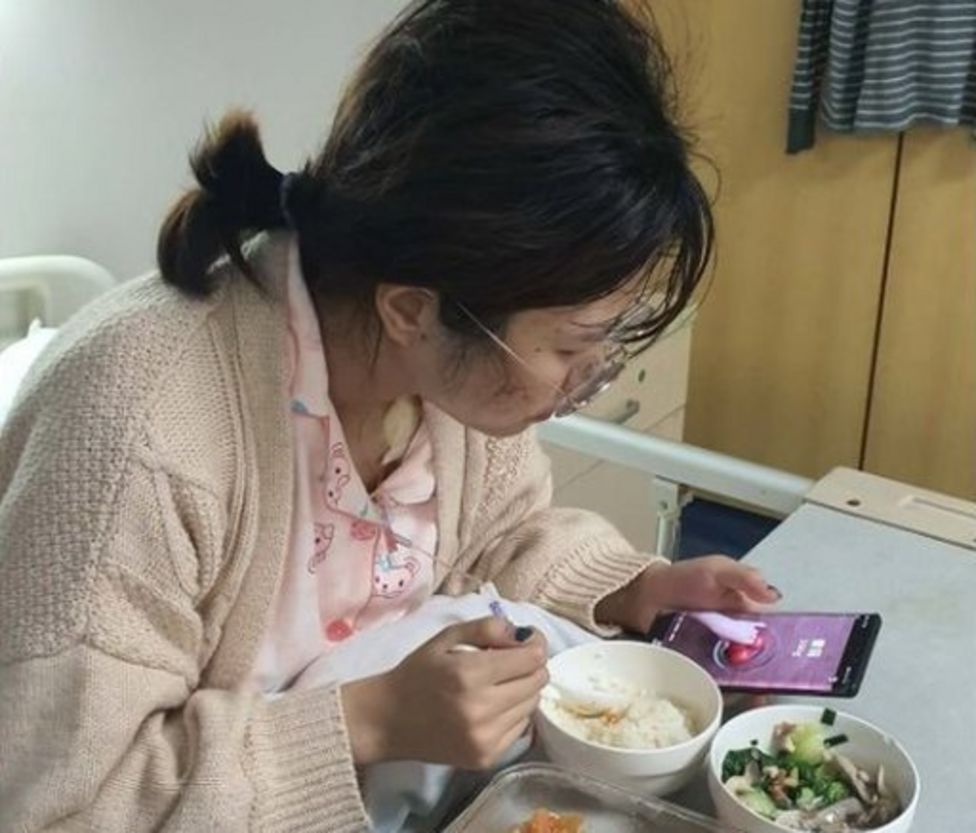 Image copyrightFAMILY HANDOUT
Image copyrightFAMILY HANDOUTShi Xiaodi met Hu Ping eight years ago at university. They were in the same class – they both studied human resources – and have been together for three years.
They were due to get married in January, but then Hu Ping was diagnosed, and the coronavirus swept the country, and everything turned upside down.
As of Thursday, there had been 67,592 confirmed coronavirus cases in Hubei – with 49,797 in Wuhan alone.
Almost 3,000 people have died in the province where Hu Ping and her mother were trying to leave. That’s almost 90% of the global total.
Shi, though, stresses the wedding is postponed – not cancelled. “We have the confidence to get through all this,” he says. “And we will get married when she is better.”
The proudest guest, one imagines, will be the mother of the bride – this time crying tears of joy.
[“source=bbc”]
